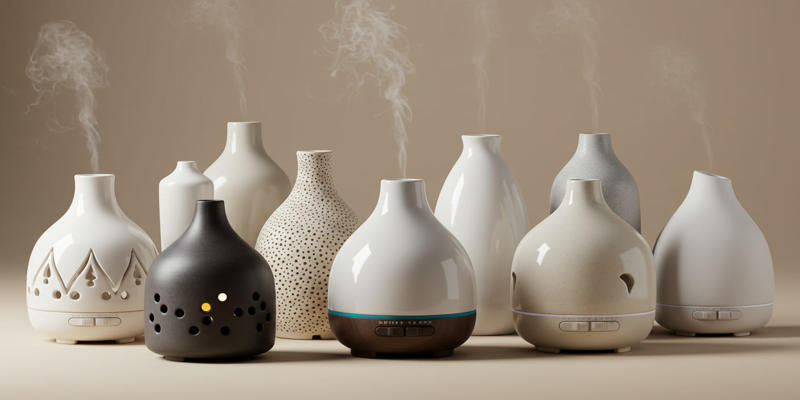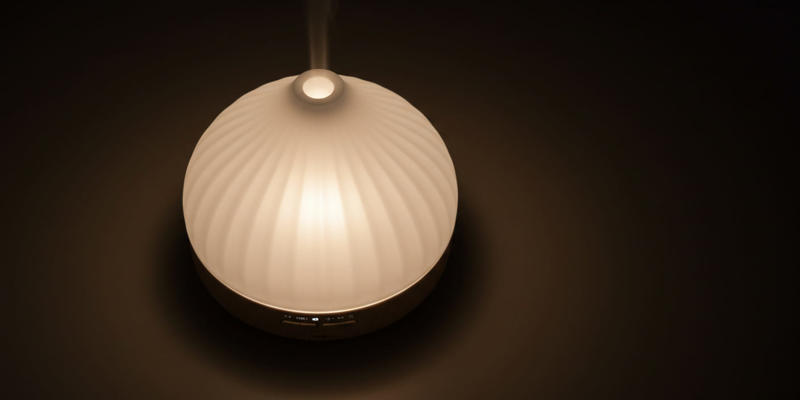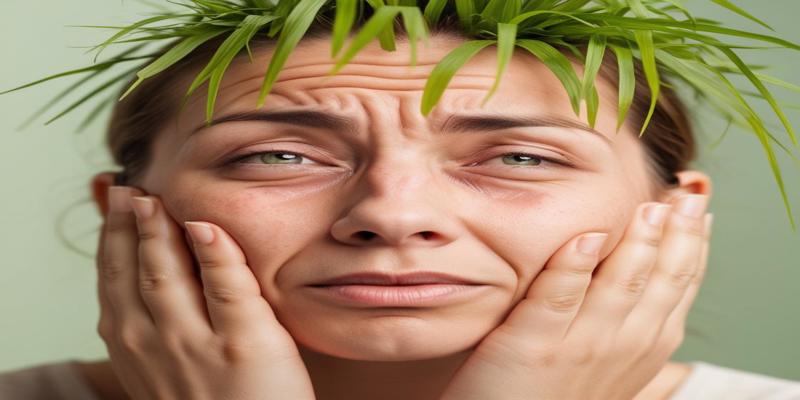Advertisement
Whether one wants to make his space more relaxing or inviting, many venture into incorporating an essential oil diffuser into their living and working areas. These gadgets boast the promise of fresh-smelling air, but beneath that wonderful aroma lie possible hazards to your health. A question, therefore, lingers in the mind: is this diffuser genuinely healthy for you, or could there be a hidden danger involved? This review attempts to outline the overall pros and cons of essential oil diffusing in light of state-of-the-art studies and expert recommendations.
 Essential oils are concentrated plant extracts naturally rich in perfumes and other therapeutic properties of specific botanical species. Since essential oils are intensely active, they have long been used in aromatherapy and traditional medicine due to their alleged health benefits and pleasing odor.
Essential oils are concentrated plant extracts naturally rich in perfumes and other therapeutic properties of specific botanical species. Since essential oils are intensely active, they have long been used in aromatherapy and traditional medicine due to their alleged health benefits and pleasing odor.
Oil diffusers, on the other hand, are appliances that spread essential oils through the air by generating them into a fine mist or vapor that can be easily absorbed. Several types of these appliances exist, all of which have their own principle of operation.
Ultrasonic Diffusers are popular appliances that use water and ultrasonic vibrations to generate fine mist particles of essential oil and water.
Nebulizing diffusers use neither water nor heat to achieve the result of essential oils into minute particles through breaking; it works by air pressure.
Whatever the type, all essential oil diffusers share one purpose: releasing the molecules of essential oils into the air. As these aromatic compounds become dispersed, they can be inhaled and perhaps absorbed through the respiratory system. This action allows the vital oils to interface with the body's olfactory system and might influence mood, cognition, and physical well-being.
 Reduction of Stress and Relaxation
Reduction of Stress and RelaxationAmong the significant benefits of oil diffusers are their promotion of relaxation and stress reduction. Certain essential oils, like lavender, chamomile, and ylang-ylang, have conventionally been utilized because of their calming effects. These oils introduce a soothing atmosphere into the air, which helps lower cortisol levels and thereby create tranquility.
Oil diffusers can provide a natural solution for those suffering from sleep disorders. Various studies denote improved sleep quality with lavender, cedarwood, and bergamot oils. These essential oils can be used in a diffuser before bed to create a relaxed atmosphere and help one prepare for better rest; this may translate into more restful nights and better daytime functioning.
Some basic essential oils are eucalyptus, peppermint, and tea tree; these help respiratory conditions. The diffused fumes from these oils are believed to ease airways, reduce congestion, and facilitate breathing easily. This is useful during flu and cold seasons or allergic or light respiratory diseases.
Some of these oils have been identified as mood elevators. Citrus oils include lemon, orange, and grapefruit, while peppermint and rosemary are believed to lift mood and energy. Diffusing them may refresh the atmosphere to enhance concentration, motivation, and general emotional well-being.
For some people, it can also irritate them-especially those with respiratory problems such as asthma or allergies-diffused essential oils. Certain particles in the fine mist of these diffusers may initiate coughing, wheezing, or shortness of breath upon inhalation. Please pay attention to your body and stop using it when any reaction occurs.
These can cause skin irritation and allergic reactions upon direct contact, although the diffusers throw them in the air for people with sensitive skin. Droplets may fall on the skin and surfaces. Some can develop rashes, itching, and other dermal problems. Always use your oils diluted and consider patch testing before widespread use.
Most essential oils are toxic to pets, mainly cats since the liver cannot metabolize some of their compounds. Thus, essential oils like tea tree and eucalyptus have more risks upon ingestion or absorption through the skin. Little kids may also be more sensitive to the intensity of their effects. Always use diffusers in a well-ventilated area, keeping the essential oils well out of the reach of curious critters and little hands alike.
Diffusers can keep your house smelling nice but may also pollute the interior air. Certain oils are likely to emit volatile organic compounds into the air and may even interact with other atmospheric chemicals, creating secondary contaminants. Overused diffusers can also increase humidity, offering the perfect conditions for mold development.
Using oil diffusers may be a pleasant way to get aromatherapy, but it is essential to use them correctly for maximum safety and efficacy. Here are some dos and don'ts to apply:
When choosing oils for your diffuser, ensure they are pure, high-quality essential oils from reputable sources. Avoid artificial fragrances or poor-quality oils, which may contain harmful chemicals that may irritate your respiratory system or trigger allergic reactions.
Essential oils are highly concentrated, and the right, unoffending concentration should be achieved. Usually, you can take 3-5 drops of essential oil in 100ml of water for a diffuser. However, always refer to the instructions provided with your diffuser model and the particular oils used.
Try not to allow your diffuser to run continuously for extended periods. Turn it on for 30-60 minutes and take breaks. This will help not to overwhelm your senses and minimize the risk of side effects due to overexposure.
Always use your diffuser in well-ventilated areas. This will reduce the buildup of oil particles in the air, decreasing respiratory irritation. Switch the diffuser off in case of discomfort or irritation, and open the window to air the room.
Clean your diffuser regularly, according to the manufacturer's directions, to keep it in good working order and prevent mold or bacterial growth. This usually means wiping down with a mild soap solution and then a complete rinse between uses.
While essential oil diffusers may provide a pleasant smell and confer benefits, caution should be exercised. Consider personal health needs, the quality of oils, and proper diffuser maintenance. Safety precautions should always be taken, and health professionals should be consulted if necessary. By being informed and attentive to how your body reacts, you will make the best decisions about bringing essential oil diffusion into your home or workspace.
Advertisement

By Elva Flynn/Mar 17, 2025

By Sid Leonard/Feb 28, 2025

By Pamela Andrew/Mar 17, 2025

By Celia Shatzman/Nov 06, 2024

By Jennifer Redmond/Dec 13, 2024

By Martina Wlison/Mar 18, 2025

By Gabrielle Bennett /Mar 01, 2025

By Paula Miller/Mar 01, 2025

By Paula Miller/Jan 24, 2025

By Korin Kashtan/Jan 18, 2025

By Maurice Oliver/Nov 06, 2024

By Celia Kreitner/Jan 11, 2025